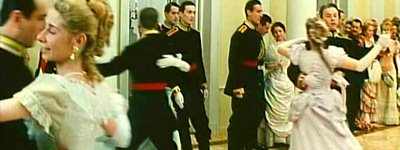
 小时候纪录片看多了,上个世纪初给我的印象是不愉快的:战争,混乱,贫穷,无论中外,人都是黑白的,且颗粒粗糙,迈着僵硬急促的步伐,做着一些我们知道是最终失败了的事。那时候人类似乎还保留着许多野蛮之气:到处是骇人的杀戮,轻易的逃亡,让人幻觉真正的文明世界是二战以后才开始的……
小时候纪录片看多了,上个世纪初给我的印象是不愉快的:战争,混乱,贫穷,无论中外,人都是黑白的,且颗粒粗糙,迈着僵硬急促的步伐,做着一些我们知道是最终失败了的事。那时候人类似乎还保留着许多野蛮之气:到处是骇人的杀戮,轻易的逃亡,让人幻觉真正的文明世界是二战以后才开始的……后来看到一些苏联解体后俄罗斯拍的有关那个年代的电影,非常惊讶于里面色彩的鲜艳和光线的明亮-那和我的想像太不一样了。可是回头想来,那时候污染肯定没有现在严重,空气自然应该是更透明的,又有什么好奇怪的呢?我甚至可以理解那些俄罗斯导演试图表达的的对那个时代的复杂心情。
时间给人的印象不同于时间本身,它既有可能快,也有可能慢;既有可能连续,也有可能中断;既有可能令人愉快,也有可能让人绝望:我说文明世界始于二战以后,茨威格肯定不会同意……二战电影里,战争结束了,人人都在阳光下跳舞,那里面不也有种惆怅和凄凉的意味吗?
鲁宾逊不是人人都可以当的:离开你熟悉的时代和环境,你能重新建构你的意义吗?我不能,也不想试。


2 comments:
This is a great posting. Color help us define the mood. But it could be misleading. Old time as reflected in documentary films are so wreched, but the sun was still bright and sky blue, and beautiful flowers bloom on the river side. We were born at our time, enjoy it, make the best of it, and one day, we will just become the past. And I think time and environment are relative. There are things universal. And people adapt. Robinson is just the master of adaptation, like an Orchard.
Rubinson greatly relied on a lie - god ;-)
Post a Comment